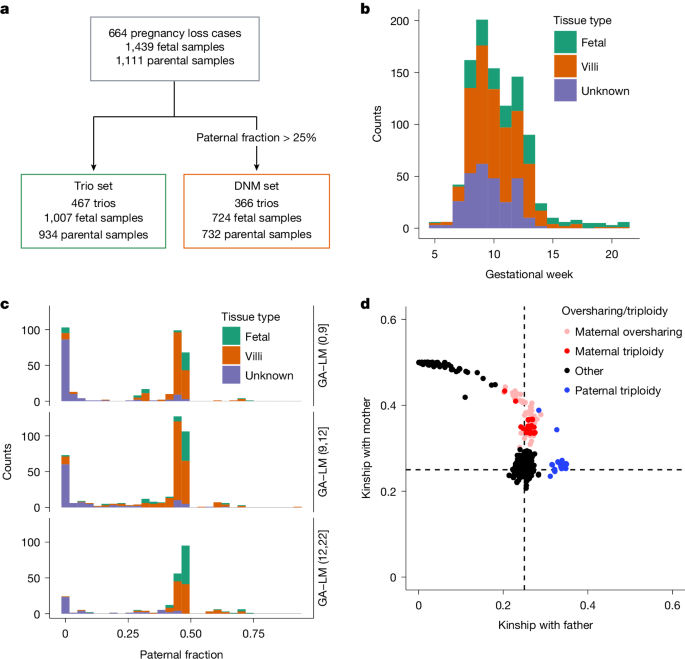
"Germline mutations, particularly de novo mutations, are crucial in assessing disease risk and understanding genetic contributions to pregnancy loss, although many remain unexplored."
"While recombination provides evolutionary benefits by shuffling genetic material, it also poses risks as a mutagenic process, leading to consequences like aneuploidies."
The article discusses the significance of germline mutations, particularly de novo mutations (DNMs), which are primarily paternal and correlate with parental age. These DNMs contribute to disease risk, but much remains unknown about their role in failed pregnancies. Recombination plays a dual role, offering evolutionary advantages while also being mutagenic, leading to serious issues like aneuploidies that account for a significant percentage of pregnancy losses. Ultimately, the genetic underpinnings of chromosomally normal pregnancy losses remain difficult to pinpoint due to rare variant occurrences.
Read at Nature
Unable to calculate read time
Collection
[
|
...
]